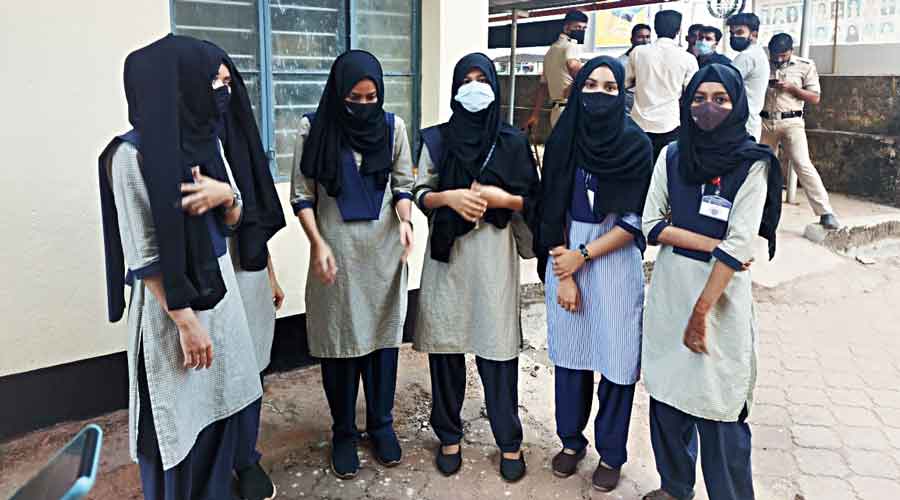The Karnataka college students who have been fighting for their right to wear the hijab in classrooms have said they would not attend classes without the headscarf, adding that they felt betrayed by their own country.
Five of the six students of the Government Pre-University College, Udupi, who suffered a setback as Karnataka High Court dismissed their petitions challenging the hijab ban in classrooms on Tuesday, told reporters that they would rather continue their fight than compromise on what they described as religious tenets.
“We will not go to classes without the hijab…. All six of us are of the same opinion that we won’t attend classes without the hijab. This is an essential part of our religion which has been denied,” Almas A.H. and Aliya Assadi told a press conference in Udupi on Tuesday.
Barring the 18-year-old Almas, all the other girls are minors.
The girls have been denied entry to their classes since late December 2021 when the college authorities issued an order that no one would be allowed into the classrooms with the hijab. While the girls have been saying they always wore the hijab, the college authorities claimed otherwise.
The girls said they would prepare for the annual exams to be held in April. “We will be preparing for our exams on our own since we haven’t attended classes for three months. But appearing for exams depends on whether our college will allow us to wear hijab,” Almas said.
Karnataka chief minister and BJP leader Basavaraj Bommai made an appeal to all students to attend classes. “I request all students to follow the high court order. Everyone should attend classes and appear for exams since your education is very important.”
Asked how long would they go on, Almas said: “We will continue this till we get our rights. We have been fighting for our rights and we are not ready to compromise on it.”
They expressed disappointment at the outcome of their petitions in the high court. “We did not get the justice we expected. The court said the hijab is not important in our religion. But it is an important aspect of our religion,” said Assadi.
“We wouldn’t be wearing the hijab if it is not essential,” Assadi said.
“We feel that we have been betrayed by our own country,” Almas said.
The students blamed the college authorities for the plight of the hijab-wearing students in the state. “All I have to tell the college authorities is that so many girls are suffering in Karnataka because you disallowed us to wear hijab in classrooms. Education of so many girls are affected because of you. None of this would have happened if you had allowed us to wear the hijab,” Assadi said.
When some reporters repeatedly asked why a few of them are insisting on the headscarf while many Muslim girls are not, Almas said: “It is their wish just as it is our wish to wear the hijab.”
The hijab row that started at the Udupi college had snowballed with students supporting Sangh parivar organisations turning up wearing saffron scarves in their counter-protests.
The issue then spread to other parts of the state where widespread protests, some of them violent, were witnessed.










